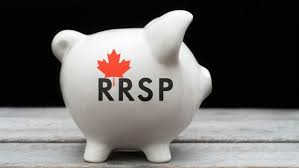Can’t seem to get ahead financially? Debts piling up? Maybe you’re making some of these mistakes unknowingly. These mistakes listed below will help you understand where you may be going wrong and how to get back on track quickly. You can be debt free.
Mistake 1. Living Beyond Your Means
This is the real cause of your worry and stress. If you are spending more than you are earning, whose money are you spending? It’s the credit card provider’s or the bank’s. The cost of this money is interest.
The way out – Make a Commitment to yourself only to spend within your income limits. Maybe you could increase your income (or cash in) by applying for more skilled positions, selling some of your unused articles or assets. Is the second car really a necessity? What about working out ways to make your hobby pay for itself?
Why not find ways to reduce your spending? How much would you save each year if you decided not to have the daily coffee shop coffee? Why not make your work lunch each day rather than buying it? Commit to only buying the necessities.
Mistake 2. Paying Off Less Than the Full Credit Card Balance Each Month
Get this debt under control and your life will be much easier. If you are like many others and only pay the minimum balance each month, the interest on the interest makes those purchases oh so expensive.
The way out – Find ways to put aside more money to apply to the credit cards. It will take time to reach this goal. However, if you don’t make a start now you may never pay them off. This situation did not occur overnight and neither will the solution. But, by diligence and commitment you’ll get there.
Mistake 3. Not Really Knowing Your Financial Situation
Before you can set meaningful goals and develop savings strategies you need to know your financial situation now. The best, proven and tested method by far, is by developing your own personal budget. This is not hard to do. Please don’t give up now. Just follow these simple steps:
The way out –
a)Find your latest credit card statements. Write down all the unpaid balances.
b)Are there any other unpaid debts (not home or car) then include these balances as well.
c)List out your (or family) monthly income. Only the amounts “brought home”. Include all types of income.
d) Work out your monthly spending. List out where all the money goes. Don’t leave anything out.
e) Minus the monthly spending total from the monthly income total and review the answer.
This will give you an initial idea as to whether you are living within your means or on borrowed money.
Mistake 4. Continually Adding to Your Debt
If debt has got you into this situation it is critically important not to add to the state of affairs and thus make it worse.
The way out – cut up the credit cards, keeping only 1 for emergencies. Don’t buy on impulse. Ask yourself twice or three times before you buy anything “Do I really need this?” before you hand over your hard-earned money. Don’t buy at the height of the fashion or fad. Commit to never paying full retail for anything. Get it on sale or negotiate a lower price.
Mistake 5. Spending All Your Income
It may sound OK to spend any money you earn but there are risks attached to this strategy. How are you going to pay for emergency items? What about major car repairs? What about major electrical appliance replacement? Are you going to pay for these on credit? Bad idea! How are you going to save for a substantial deposit on the next car?
The way out – Once you’ve prepared your budget you will clearly see what you need to do to put some income aside for other needs such are emergencies and repairs.
Mistake 6. Spending Without Caring About Your Future
Unless you are planning for your future and financial security, you cannot be really happy. There are always worries lurking in your mind about how you would survive in a financial emergency if you have no savings. It can be very rewarding to see how quickly your savings multiply over time with only a small investment each payday.
The way out – Take stock of your life and realize that tomorrow won’t look after itself. It needs your attention. Keep some funds aside to put away for your retirement, children’s college costs, emergencies, holidays and major purchases.
Avoid these 6 spending mistakes and you’ll be well on your way to financial freedom. Guaranteed.
About the Author
Bruce Hokin is an experienced accountant, manager, consultant and financial adviser.




No Comments